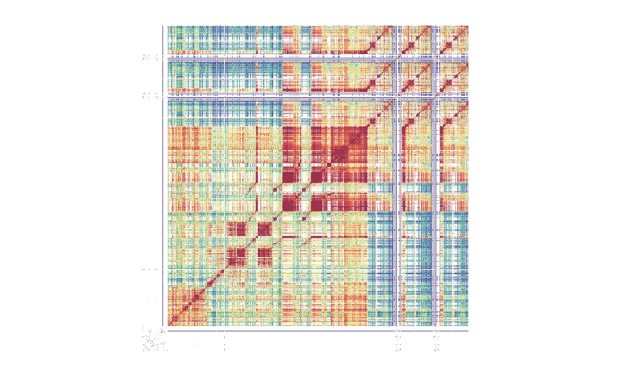Animal welfare scoring system developed by Caian
- 22 March 2023
- 3 minutes
Animal welfare can, for the first time, be properly considered alongside other impacts of farming to help identify which farming systems are best, following the development of a scoring system by scientists at the University of Cambridge.
Dr Harriet Bartlett (Veterinary Medicine 2012) is the lead author of a paper which provides a system to measure animal welfare across different types of pig farming.
This is vital for improving animal welfare in livestock production, at a time when demand for meat is rising globally and the way animals are farmed is changing – with concerns about the welfare of intensive and indoor systems.
Animal welfare assessments could also enable consumers to be better informed when choosing what to eat.
Britain has various labelling schemes for meat products to assure consumers that certain standards have been met. The team used their new system to test how the different labels compare in terms of animal welfare.
Farms producing ‘woodland’ labelled pork products scored best for pig welfare, followed by ‘organic’, then free-range, RSPCA assured, Red Tractor, and finally those with no certification.
“We have shown that it’s possible to reliably assess animal welfare on farms,” Harriet said.
“This means decisions about which types of farm are better or worse for animal welfare can be based on proper calculations, rather than assumptions – as is currently the case.
“Now animal welfare can be included in overall assessments of farm sustainability alongside other measures like carbon emissions and biodiversity impacts, so we can make better informed decisions about how we choose to farm and what we choose to eat.”
Coming up with an overall measurement of animal welfare has previously been difficult because of disagreement on which factors are most important. For example, is a health problem more important than a behaviour problem? What level of welfare is good enough?
The new system assesses the quality of an animal’s life through a wide-ranging set of welfare measurements, reflecting a range of concerns about welfare. The results can be integrated into a single score to enable comparison across farms.
The results are published today in the journal Proceedings of the Royal Society B.
Harriet carried out this work while a researcher at the University of Cambridge’s Departments of Zoology and Veterinary Medicine. She is now a Research Associate in Sustainable Food Solutions at the University of Oxford.
Additionally, Harriet in February published a paper in Scientific Reports titled: Identifying ways of producing pigs more sustainably: tradeoffs and co-benefits in land and antimicrobial use.
Harriet following her PhD viva, pictured with one of her supervisors, Prof Andrew Balmford.
:: Harriet has previously featured on the College website: Caius PhD student pushing boundaries of research and real-world impact | Gonville & Caius (cam.ac.uk)



